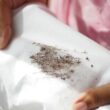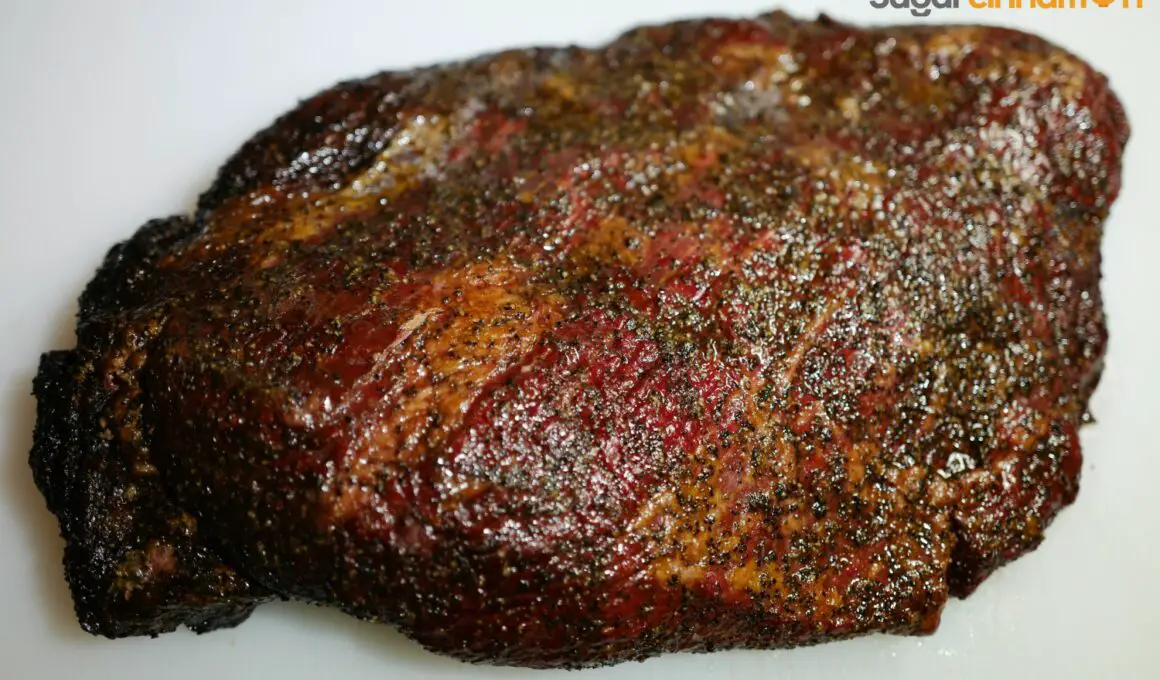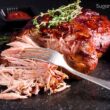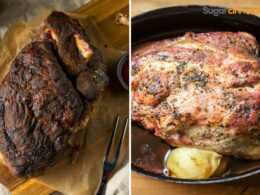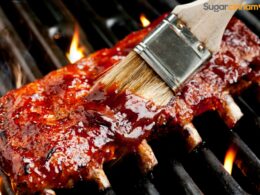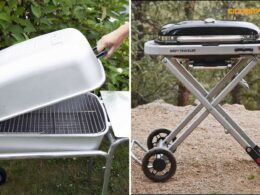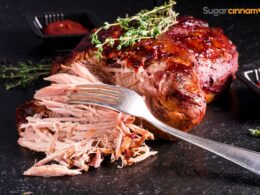Table of Contents Show
When your brisket cooks too fast, it is obvious you will end up with a brisket with an entirely different flavor to that cooked at low and slow temperatures. The flavor of a brisket cooked too fast will still be awesome but do not expect it to taste exactly like a brisket. Instead, it will have a super tender and almost steak-like flavor; luckily, there are things you can do to stop your brisket from cooking too fast.
Brisket is the eighth primal cut of beef and is also known as the ultimate meat, but there are certain tricks you need to know to cook it to perfection. Brisket can take up to 15 hours to smoke, and also it can be pretty unpredictable, but you can quickly get the hang of it after smoking once or twice.
Whether your brisket is cooking too slowly or fast, know how to manipulate it and cook it at the perfect temperature settings. If you let it cook too fast, you have to expect the flavor to change drastically, so cooking it on low and slow heat is a perfect way; it won’t lose its tenderness or become tough either.
You have to aim for a certain temperature when making brisket, so when you notice your brisket is cooking too fast, do not panic. You must properly cook your brisket, or you will end up with meat that is too hard and chewy to eat.
Stick around to learn what to do when your brisket is cooking too fast and how to cook brisket properly.
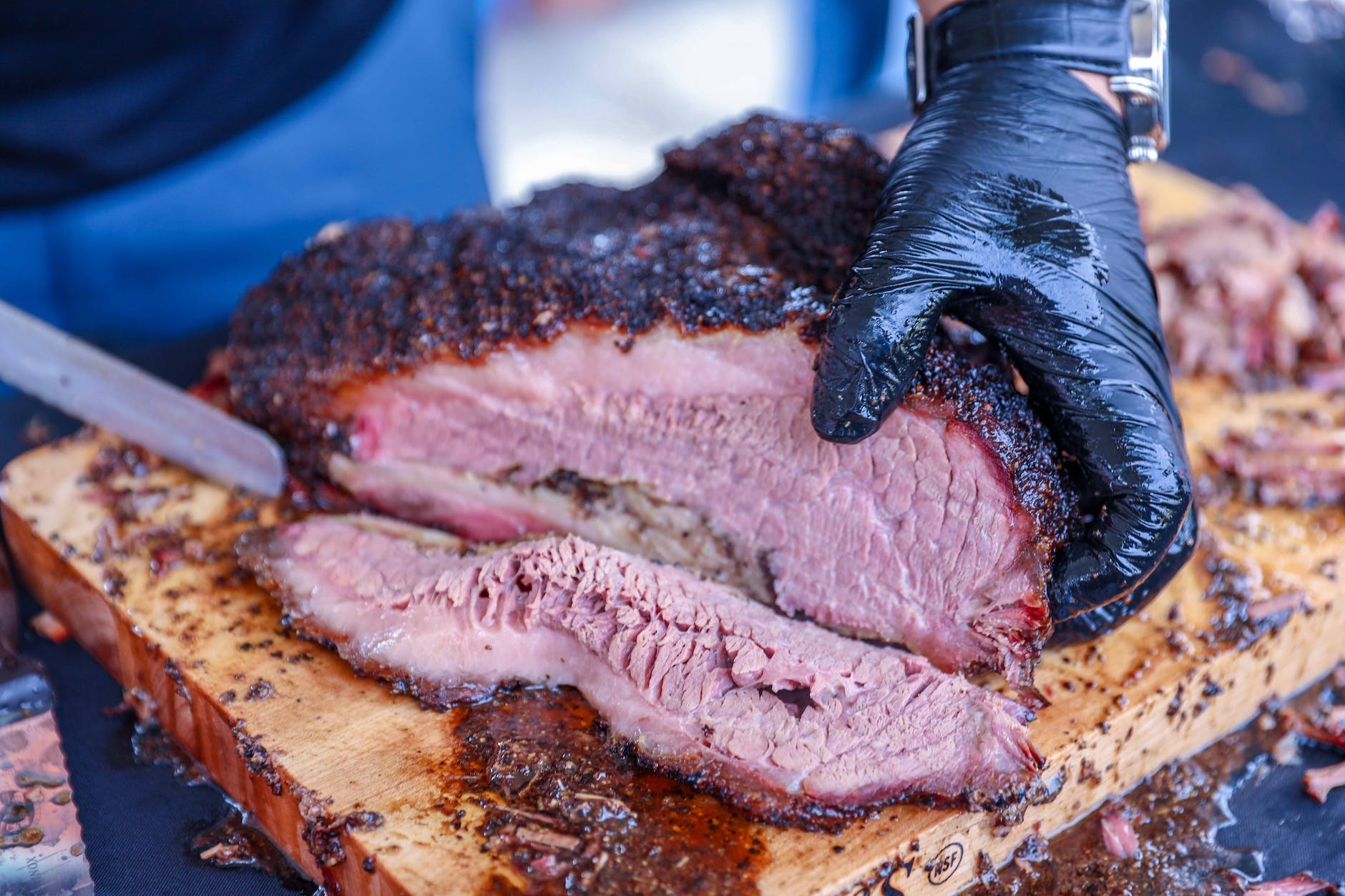
Why Does Brisket Cook Too Fast
If you are going to ensure your brisket does not cook too fast anymore, first, you must understand that certain factors can cause this. The most apparent reason why brisket might cook too fast is that the temperature of your smoker or if you are using the oven is too high.
This means your brisket is going to be done too early, do note that the rise in brisket temperature is not consistent throughout the cooking period. It will hit a stall when it gets to 150–170 degrees, and the brisket will dramatically slow down, thereby drying out your brisket.
Another reason your brisket might be cooking too fast is that it is too close to the heat source. It is always advised that you place the cut with the fatty surface downwards to avoid placing it too close to the source of heat.
How large or small your cut of meat is will also determine how fast or slow it cooks. A smaller or thinner cut of brisket will cook faster than a large thick cut so you might want to take the size of your brisket into account. The rule to adhere to with brisket is to cook to tenderness, not time or temperature.
To know if your brisket is cooking too fast, you should watch how quickly the outside of the meat turns dark and also at what point the juices inside the meat start to run clean, which signifies that your brisket is becoming dry instead of the remaining juice.
Effects of Brisket Cooking Too Fast
Brisket that cooks too fast won’t give you that tenderness and juiciness every brisket ought to have. It is a well-known knowledge that briskets require low and slow heat to cook to perfection, it’s necessary to cook on low heat to enable all the connective tissue and fat to effectively melt and turn it into a naturally tough and tender cut of beef.
Generally, briskets are meant to take a long time to smoke, even up to 15 hours, but when you let it cook too fast, it affects the texture and taste; it tends to become too hard and chewy to eat. You can expect it to lose its tenderness and change considerably when you cook it too fast. This is why it’s essential you slow cook as the slow fire brings forth its best flavor.
The lengthy muscle fiber of your brisket gets enough time to cook perfectly when it’s only low and slow fire, the brisket is cooked like it should so you get a juicy and tender brisket.
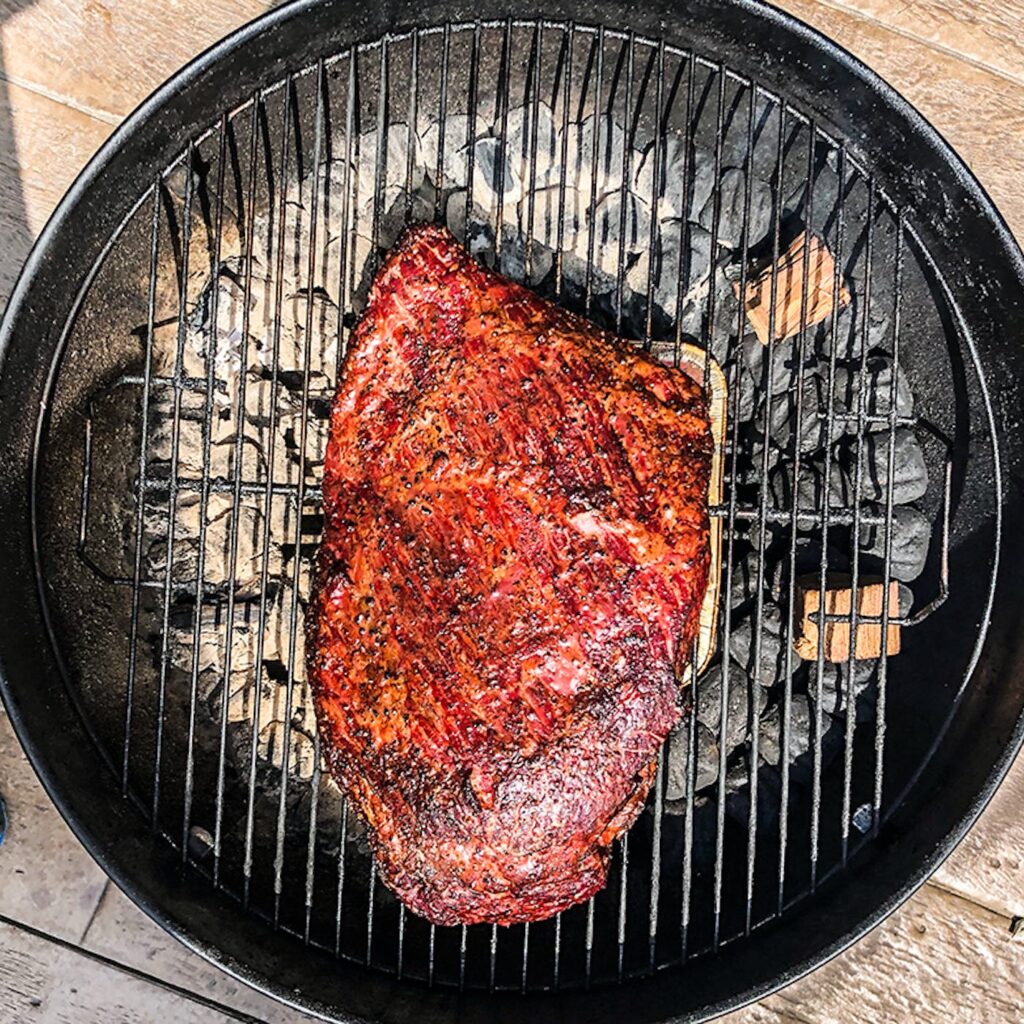
Brisket Cooking Too Fast: What to Do
So what do you do when you discover brisket is cooking too fast? It takes skill to master cooking brisket at the perfect temperature, but it’s also best to focus on making tender brisket and not on time and temperature.
You get soft and succulent meat when you cook it on slow fire, you don’t want your meat dry and rough so here are three actions you can take to slow down your meat so you can get a succulent slice of brisket.
1. Turn Down The Heat
The issue of brisket cooking too fast often arises as a result of high temperatures so the first thing you want to do is to turn down the heat. If the brisket’s internal temperature has not reached 180 degrees, then it means there is still enough time to slow-cook it to perfection.
This is also another reason you should keep an eye on the internal temperature so you know when it’s rising too quickly than your liking.
Decrease the temp setting to 225 degrees and wait for 20 minutes to see if the actual temperature drops, you may notice of reduction of 30 to 40 minutes per pound of brisket. So, once it settles back down, then your brisket can continue to cook at the normal temperature rate.
2. Spritz Your Brisket More Often
On the other hand, you can slow down your brisket cooking too fast by spritzing it, and you will also know that this does magic when it comes to settling down your meat and helping it cook perfectly.
Keeping it moist is also an opportunity to add humidity to your meat; you can add another flavor to your brisket by spritzing it with liquids like beer broth, apple cider vinegar, and anything of your choice.
Spritz every hour or 45 minutes, it will enable you to hold steady the temperature of your brisket while also developing a strong flavor for the bark.
3. Wait Out The Stall
Many of us hate the stall, but it’s a normal part of smoking a brisket, and there are two options. Either wait it out or wrap the meat in foil or butcher paper, but rather than do this, you might want to wait it out.
The stall happens when the moisture in your brisket cools like perspiration, the cooling effect is stronger than the temperature in the smoker can pull through; some prevent this process by wrapping their brisket in foil before cooking.
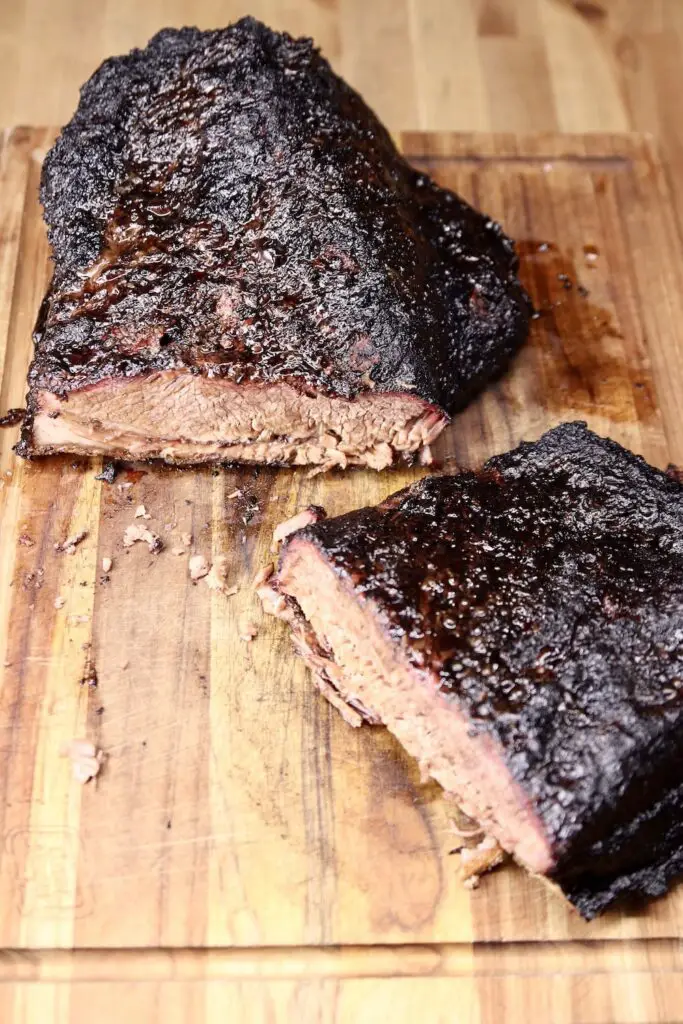
Instead of wrapping your brisket through the stall, you might want to take additional time into account, thereby giving your brisket extra hours to cook as long as your smoker is working perfectly.
Not wrapping it through the stall enables your brisket to cook at a steady temperature.
How to Rescue Brisket That Has Cooked Too Fast
There is a huge chance that you are reading this guide too late and your brisket has already hit 205–210 degrees F so you have no choice but to remove it from the smoker, but not to worry; there are ways you can still salvage it.
Below is how you can rescue a brisket that is cooked too fast or overdone.
- Rather than serve the brisket immediately, let it rest; this is a time-tested method that professionals use to give brisket more cooking time. You can rest it up in a cooler for 8 hours or wrap it in a towel to keep the heat in for an extended period.
- Rest it in the oven. Place the brisket in the middle of the oven and set it to the lowest possible temperature, 170 degrees. This method will warm it up for some hours ahead of serving. It would be best if you rested it for an hour after this before serving.
If you feel your brisket has cooked too fast, but it is done already, do not cook it any further as there is nothing to be gained by doing that. The key is to preserve the moisture of your brisket for an extended period, so you can only try and rest it to ensure it becomes tender.
Final Thoughts
Two main techniques are viable for cooking perfectly tender and juicy, one is in the smoker or slowly in the oven. When you are cooking with a smoker, you should use an internal temperature probe so you can monitor the temperature, but you still have to carefully watch out for signs that your brisket might be cooking too fast
Every mistake with brisket teaches you something, so the trick is to keep trying. To enjoy a traditional barbecue, the trick is to learn how the temperature works.
If you check your brisket and the outside is turning dark quickly, and at the point, the juices are running, take action fast and slow down the heat. Time and patience are needed in this case. Brisket cooking is challenging; however, do not fret; you can bring things under control in no time with this guide.





